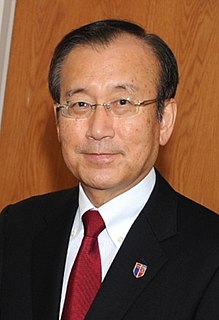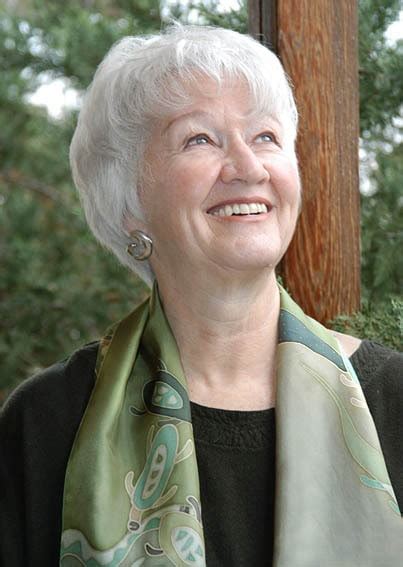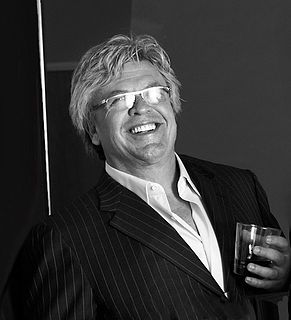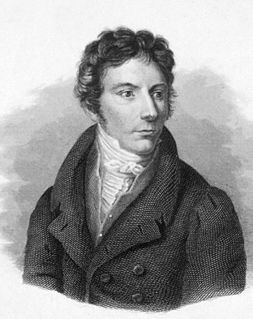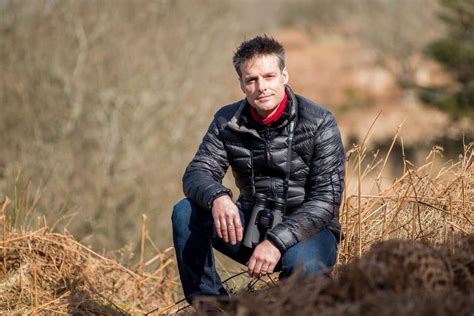A Quote by Georges-Louis Leclerc, Comte de Buffon
As historians, we refuse to allow ourselves these vain speculations which turn on possibilities that, in order to be reduced to actuality, suppose an overturning of the Universe, in which our globe, like a speck of abandoned matter, escapes our vision and is no longer an object worthy of our regard. In order to fix our vision, it is necessary to take it such as it is, to observe well all parts of it, and by indications infer from the present to the past.
Related Quotes
The gist of the matter is this: Every impression that comes in from without, be it a sentence which we hear, an object of vision, or an effluvium which assails our nose, no sooner enters our consciousness than it is drafted off in some determinate direction or other, making connection with the other materials already there, and finally producing what we call our reaction. The particular connections it strikes into are determined by our past experiences and the 'associations' of the present sort of impression with them.
As parents, we can have no joy, knowing that this government is not sufficiently lasting to ensure any thing which we may bequeath to posterity: And by a plain method of argument, as we are running the next generation into debt, we ought to do the work of it, otherwise we use them meanly and pitifully. In order to discover the line of our duty rightly, we should take our children in our hand, and fix our station a few years farther into life; that eminence will present a prospect, which a few present fears and prejudices conceal from our sight.
We cannot and must not allow ourselves to have the message of Hiroshima and Nagasaki fade completely from our minds, and we cannot allow our vision or ideals to fade, either. For if we do, we have but one course left for us. And that flash of light will not only rob us of our vision, but it will rob us of our lives, our progeny, and our very existence.
And so it is with our own past. It is a labour in vain to attempt to recapture it: all the efforts of our intellect must prove futile. The past is hidden somewhere outside the realm, beyond the reach of intellect, in some material object (in the sensation which that material object will give us) of which we have no inkling. And it depends on chance whether or not we come upon this object before we ourselves must die.
The world that we live in is full of distractions and pleasures that pull us away from a spiritual life. Even our jobs which are a very necessary and important part of our lives can end up being the altar at which we pray. They consume most of our waking hours and provide the income on which we are dependent in order to take care of our families.
In the nature of our existence, we must act to achieve values. And in order to act appropriately, we need to value the beneficiary of our actions. In order to seek values, we must consider ourselves worthy of enjoying them. In order to fight for our happiness, we must consider ourselves worthy of happiness.
Distance... is like futurity. A dim vastness is spread before our souls; the perceptions of our mind are as obscure as those of our vision... But alas! when we have attained our object, when the distant 'there' becomes the present 'here,' all is changed; we are as poor and circumscribed as ever, and our souls still languish for unattainable happiness.
Faith is indeed the energy of our whole universe directed to the highest form of being. Faith gives stability to our view of the universe. By faith we are convinced that our impressions of things without are not dreams or delusions, but, for us, true representations of our environment. By faith we are convinced that the signs of permanence, order, progress, which we observe in nature are true. By faith we are convinced that fellowship is possible with our fellow man and with God.
The world of ideas which it [mathematics] discloses or illuminates, the contemplation of divine beauty and order which it induces, the harmonious connexion of its parts, the infinite hierarchy and absolute evidence of the truths with which it is concerned, these, and such like, are the surest grounds of the title of mathematics to human regard, and would remain unimpeached and unimpaired were the plan of the universe unrolled like a map at our feet, and the mind of man qualified to take in the whole scheme of creation at a glance.
I have gained and sustained my optimism as a humble student of our living universe, our living Earth, which clearly shows us the way out of our adolescent crisis into a mature global future. The sooner we create our vision of all we desire, set our intention to implement it together, and put our individual capacities into collective action, the greater our chances of success.
As Heinz Pagels has said, The challenge to our civilization which has come from our knowledge of the cosmic energies that fuels the stars, the movement of light and electrons through matter, the intricate molecular order which is the biological basis of life, must be met by the creation of a moral and political order which will accommodate these forces or we shall be destroyed. It will try our deepest resources of reason and compassion.




